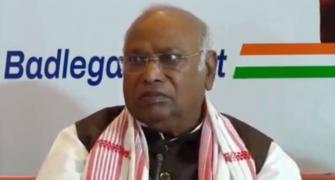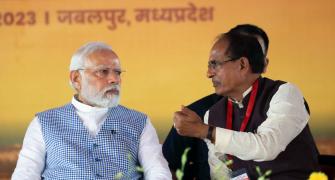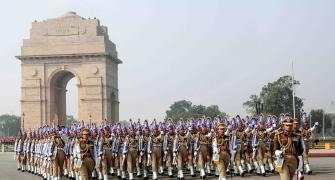Amidst the Sangh Parivar's opposition to dredging in the Ramar Sethu or Adam's Bridge area in Palk Straits for the Sethusamudram Ship Canal Project, Union Shipping Minister T R Baalu spent more than four hours at the historic Saraswathi Mahal Library in Thanjavur, sifting through ancient documents and the Ramayana.
According to library sources, Baalu noted down some details about the Ramar Sethu during his visit on Monday. He also sought details about books and pictures on Ramar Sethu.
Baalu's visit is seen as an effort to arm himself with facts about Ramar Sethu when he faces Bharatiya Janata Party and All India Anna Dravida Munnetra Kazhagam and lawmakers in Parliament, who are opposed to the damage to the 'bridge.'
Talking to media persons later, Baalu said he had gone to the library to get more facts about the bridge. Whatever details he had collected will be presented in Parliament on May 23 and not before that, 'as any announcement now will work to the advantage of the opponents.'
Baalu took copies of the Valmiki Ramayan, Tulasi Ramayan, Adhyathma Ramayan, Kamba Ramayan and many other books, as also copies of maps on Ramar Sethu.
According to Hindu mythology, the bridge was built by the Vanarasena (army of monkeys) to help Lord Ram cross over to Ravana's Lanka, wage a war and bring back his wife Sita.
Hindus consider it a religious symbol and an ancient monument. Scientists however consider Ramar Sethu to be just a natural formation.
Though NASA has also taken a satellite picture of the Ramar Sethu, they have not given any opinion on whether it was man made or natural.







